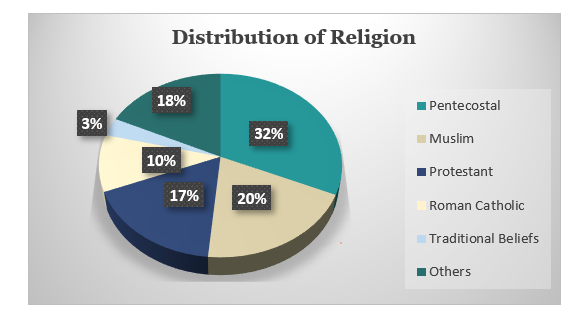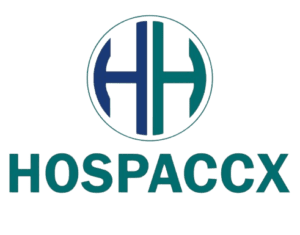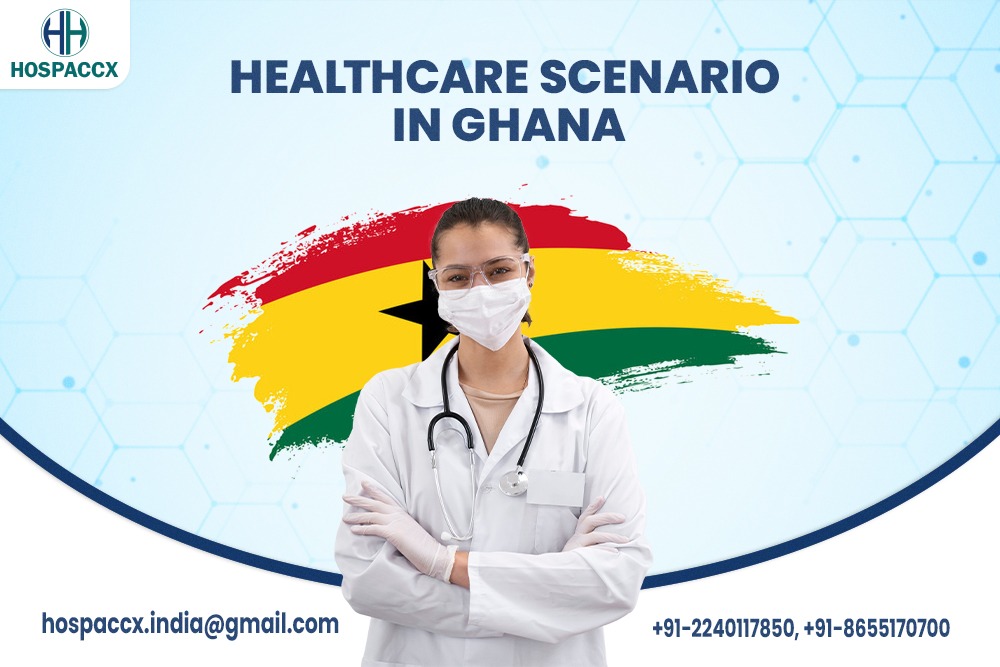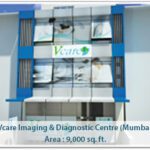In this article, Hospaccx Healthcare Consultancy sheds light on the healthcare landscape of Ghana. We explore the government’s healthcare initiatives, the presence of private medical facilities, and emerging investment opportunities. Whether you’re contemplating development, restructuring, or investment ventures within Ghana’s healthcare sector, our insights provide valuable information on existing infrastructure and promising investment prospects.
Introduction
Ghana, located in West Africa, spans an area of 239,567 square kilometers and is home to over 32 million people. Its varied landscapes encompass coastal savannas and lush tropical rainforests, with Accra serving as the bustling capital and largest city, alongside urban centers like Kumasi, Tamale, and Sekondi-Takoradi. The Ministry of Health oversees its healthcare system, which includes the National Health Insurance Scheme (NHIS) introduced in 2003 to improve access to healthcare by reducing financial barriers. Despite progress, challenges remain, especially in rural areas. However, government initiatives aim to ensure universal healthcare access for all Ghanaians.
Demography
|
Population |
34,121,985 (2023 est) |
|
Population Density |
150 per Km2 (388 people per mi2) (2023 est) |
|
Sex Ratio |
1.03 (1,036 male per 10 female) (2023 est)
|
|
Ethnicity |
Akan 47.5%, Mole-Dagbon 16.6%, Ewe 13.9%, Ga-Dangme 7.4%, Gurma 5.7%, Guan 3.7%, Grusi 2.5%, Mande Busanga 1.1%, others 1.6% |

Fig 1. In Ghana, the Highest Population is of Pentecostal 32%, then Muslim 20%, Protestant 17%, Roman Catholic 10%, Traditional Beliefs 3% and others 18%
Economy
| Indicator
|
2022 | 2023 | 2024 (Projected)) |
| GDP Growth Rate
(%)
|
3.1 | 2.9 | 2.8 |
| Fiscal Deficit (%)
|
– | 4.6 | 5.0 |
| Current Account Deficit (% of GDP) (6)
|
– | 4.6 | – |
| Inflation Rate (%)
|
– | 23.2 | 20.1 |
| Agricultural contribution to GDP (%)
|
19.57 | – | – |
| Services contribution to GDP (%)
|
42.03 | – | – |
| Industry contribution to GDP (%)
|
31.99 | – | – |
| Main drivers of Growth
|
– | Fiscal consolidation, inflation control, structural reforms |
Some Important Health Statistics
- Total fertility rate – 3.5 live births per woman (2023 est)
- Infant Mortality rate – 32.1 deaths per 1,000 live births (2023 est)
- Maternal Mortality rate – 310 deaths per 100,000 live births (2022 est)
- Urban Population – 56.7% (2023 est)
- Rural Population – 43.3% (2023 est)
- GDP growth rate – 2.9% (2023 est)
Major Diseases in Ghana
| Diseases | Description |
| Malaria | Malaria remains a significant public health problem in Ghana, with an estimated 5.4 million cases and 12,557 deaths in 2022.
|
| Tuberculosis (TB) (10) | The incidence of tuberculosis in Ghana was 136 cases per 100,000 people in 2021. Mortality rates have slightly declined, but Ghana has not met the 95-95-95 goals for TB/HIV. |
| HIV/AIDS (11) | Ghana has not met the 95-95-95 goals for HIV/AIDS. Approximately 245,223 people were receiving antiretroviral treatment in 2022.
|
| Neglected Tropical Diseases (NTDs) | Ghana is endemic for several NTDs amenable to preventive chemotherapy through mass drug administration (MDA), including lymphatic filariasis, schistosomiasis, and soil-transmitted helminthiasis.
|
| Non-communicable Diseases (NCDs) | Cardiovascular Disease, Chronic Respiratory Disease, Cancer, and Diabetes are significant NCDs in Ghana, contributing to high mortality rates. Ghana has implemented initial efforts to address NCDs, but progress against indicators remains limited.
|
Top 5 Causes of Mortality in Ghana
- Lower Respiratory Infections – 11%
- Stroke – 9%
- Malaria – 8%
- Ischemic heart disease – 6%
- HIV/AIDS – 5%
In Ghana, the leading causes of mortality encompass respiratory conditions, cardiovascular issues, infectious diseases, and other health challenges. Efforts to mitigate these factors are crucial for improving public health outcomes and enhancing overall well-being.
Healthcare Scenario in Ghana
- Ghana allocates approximately 6% of its GDP to healthcare infrastructure, with identified gaps accentuated by the COVID-19 pandemic, highlighting the need for additional district-level hospitals.
- Ghana’s healthcare system serves a population of over 30 million and comprises public, private, and traditional healthcare providers overseen by the Ministry of Health.
- Organized at national, regional, and district levels, healthcare interventions are tailored to each level and delivered through clinics and hospitals, with urban centers well-served compared to rural areas.
- The healthcare system includes five provider levels, from health posts in rural areas to tertiary hospitals, largely administered by the Ministry of Health and Ghana Health Services.
Healthcare Related Human Resources in Ghana (2021)
| 1. Doctors | 3,236 |
| 2. Dentist | 570 |
| 3. Physiotherapists | 500 |
| 4. Nutritionist | 400 |
| 5. Nurses | 58,217 |
| 6. Midwives | 3,379 |
| 7. Pharmacists | 619 |
Major Medical Institutions in Ghana
PUBLIC
- Greater Accra Regional Hospital – 420 beds
Originally serving European expatriates, the Greater Accra Regional Hospital, formerly Ridge Hospital, has evolved into a modern healthcare facility in Accra, Ghana, offering specialized services to meet the city’s growing needs.
- Korle Bu Teaching Hospital – 2,000 beds
Korle Bu Teaching Hospital, Ghana’s foremost tertiary healthcare institution, was founded in 1923 under the leadership of Sir Frederick Gordon Guggisberg. Originally established as a General Hospital, its name, “Korle Bu,” translates to “the valley of the Korle Lagoon” in the local Ga language.
- Suhum Government Hospital – 30 beds
As a national government agency, it focuses on addressing critical issues such as child abuse, gender-based violence, exploitation, and providing care for children without adequate parental support, as well as assisting those affected by HIV/AIDS.
- Kwahu Government Hospital, Atibe – 177 beds
Situated in Atibie along the main Nkawkaw-Atibie Street, the Kwahu Government Hospital serves a population of approximately 230,000 individuals hailing from over 200 communities within and beyond the district.
- GA East Municipal Hospital – 100 beds
The Ga East Municipal Hospital, formerly a Covid-19 Centre, is now fully operational. Despite misconceptions, it has been thoroughly disinfected. The hospital is now introducing the National Health Insurance Scheme to encourage more clients.
- Nsawam Government Hospital – 147 beds
Also known as the Nsawam Government Hospital, is a well-known district hospital in the Eastern Region of Ghana. Established in 1928, it is situated in Nsawam, the capital of the Akuapim South Municipality.
- Swedru Government Hospital – 148 beds
The organization caters to individuals with disabilities, offering services and support tailored to their needs. Located in Agona Swedru, within the Agona West Municipal district of the Central Region.
- Atua Government Hospital – 107 beds
Established in 1977, Atua Government Hospital is led by a core management team consisting of a Medical Superintendent, Health Services Administrator, Head of Finance, Head of Nursing Administration, and Pharmacist.
- Kade Government Hospital – 67 beds
Eastern Regional Minister urges regular healthcare visits, praises local efforts to equip maternity block. Calls for citizen support in maintaining hospital facilities and emphasizes nurses’ role in patient care.
PRIVATE
- The Trust Hospital Osu, Accra – 50 beds
Established in 1992, The Trust Hospital initially served SSNIT staff, later expanding to the public. Incorporated in 2010, it now includes The Trust Specialist Hospital and The Trust Mother and Child Hospital, along with six satellite clinics.
- Bemuah Royal Hospital – 30 beds
Bemuah Royal Hospital is committed to delivering exceptional patient care, training healthcare professionals, and enhancing healthcare standards in Ghana. They offer world-class quality care by adhering to international standards, employing highly trained professionals, and utilizing cutting-edge technology.
- North Legon Hospital – 597 beds
Goal is to deliver exceptional healthcare services that surpass community expectations. Established in 1997, North Legon Hospital operates in the Hospitals and Health Care industry with a team of 11-50 employees.
- Martins Memorial Hospital – Dansoman – 50 beds
Provides quality healthcare in a supportive environment. Committed to excellence, it aims to become a leading tertiary hospital in the region. Offering specialist services and 24/7 emergency care, it prioritizes patient well-being with skilled professionals and modern facilities.
- Commonwealth Aid Clinic – 86 beds
Established in 1986 and expanded in 2007, it is a vital community facility offering comprehensive medical services. With 86 beds and high occupancy rates, we provide emergency care, obstetrics, surgery, and outpatient services to over 60,000 patients annually.
- Sinel Specialist Hospital – N/A
At Sinel Specialist Hospital, patient well-being is paramount. With round-the-clock exceptional care and high-quality medical services, they cater to diverse health needs. From urgent care to specialized treatments, skilled clinicians ensure excellence.
- MAB International Hospital – 150 beds
It aims for community-centered healthcare, emphasizing compassion, excellence, and safety. They prioritize patient well-being through teamwork and community partnerships.
- Blue Valley Specialist Medical Centre – 20 beds
Blue Valley, a premier medical center in Ghana, offers state-of-the-art facilities and top-notch medical services. Located in Choice-New Weija, near West Hills Mall, they specialize in various health departments, providing both curative and preventive care since August 2014.
- Sycamore Medical Centre – 172 beds
Dr. Tawiah Siameh initiated a medical center concept while studying at the University of Ghana Medical School. Together with his wife, Mrs. Felicia Siameh, they began the project in the Western Region. Operations commenced on October 8, 1998, with outpatient services starting on November 18, 2006.
- The Bank Hospital – 65 beds
At The Bank Hospital, top-notch medical professionals focus on individualized care and quality treatment for all. Their facilities are up-to-date and well-equipped, tailored to provide the best possible medical care for patients.
Major Diagnostic Centres in Ghana
- Diagnostic Centre Ltd., Accra, Ghana
- Novocare Diagnostics and Imaging, Ghana
- Diamed Diagnosyic Centre, Accra, Ghana
- MedyLife Healthcare Limited, Ghana
- Sunshine Healthcare Ltd., Accra, Ghana
- Paradise Diagnostic Centre, Lapaz, Ghana
- Health on Wheels, Taifa, Ghana
- PapSon Medical Diagnostic Centre, Ghana
- Grace Diagnostic Center, Ghana
- Shalina Diagnostic Center, Accra, Ghana
Conclusion
In Ghana, the healthcare landscape presents a blend of strides and obstacles. While efforts have been made to enhance accessibility and quality, rural areas still face infrastructure and resource deficiencies. Nevertheless, the emergence of private hospitals and specialist centers showcases innovative approaches. Moving ahead, sustained investments in infrastructure, workforce development, and community engagement will be crucial for ensuring equitable access to quality healthcare nationwide.
For more details on planning and designing a new healthcare facility in Ghana, contact Hospaccx Healthcare Business Consulting Pvt. Ltd. Reach out to us via email at hospaccx.india@gmail.com or visit our website www.hospaccxconsulting.com. We are committed to supporting your healthcare endeavors in Ghana.
Related Team Members











